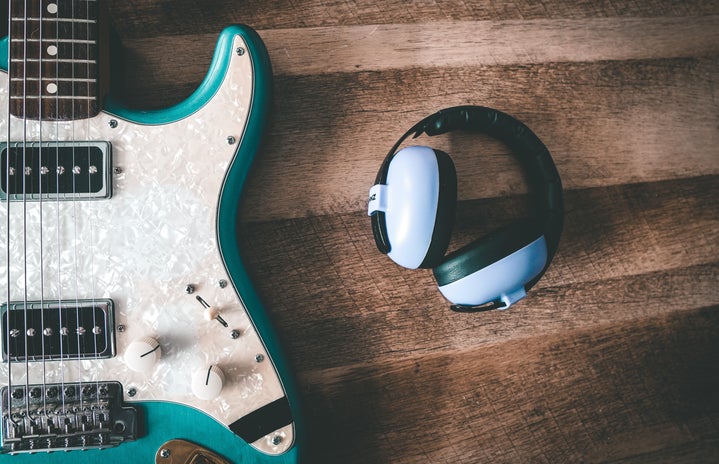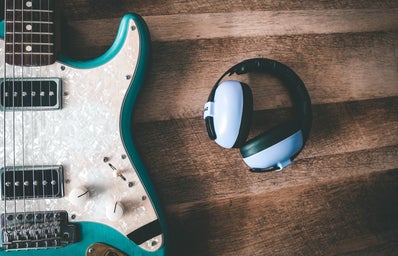I’ve been passionate about music since I was little and it has benefited my life in many ways. Without it, I don’t know how I would survive times like exam season, the holidays, or walks to campus. Not only does music have a tremendous impact on me, but it also plays a pivotal role in society while greatly impacting our culture. Someone once asked me, “would you rather live without movies or music?” The first thing that came to my mind was, who on earth would live without music? It seemed like a no-brainer to me. My answer is slightly biased, given that I am a musician and a singer. However, if you would argue that you’d choose movies, let me change your mind. Here are four ways music impacts our society and why I would sacrifice Marvel and Disney for the art of music.
1. Music Is A Tool For Social Change.
Music is vital in social movements because it establishes collective identity, inspires action, and incites courage in people, which pushes them to get involved. Social movements can only have an impact if hundreds of people come together, and music is a medium that establishes a common ground through its lyrics.
Nina Simone once said, “an artist’s duty is to reflect the times.” This is precisely what artists like Billie Holiday, Bob Dylan, Sam Cooke, and John Lennon did with some of their hit songs like “Strange Fruit” (1939), “Blowin’ In The Wind” (1963), “A Change Is Gonna Come” (1964), and “Imagine” (1971), respectively. These songs have recorded the narrative of social injustices throughout history by reflecting on civil rights, peace, and equality. For example, John Lennon advocated for equality when he sang:
“Imagine no possessions
I wonder if you can
No need for greed or hunger
A brotherhood of man” (and womanhood of women!).
Songs like this can become trademarks within civil rights protests and support those who partake in them. We’ve been listening to these artists and their music for years, and I find it incredible that their tunes still stay with us and can motivate people to unite.
Music also gives marginalized groups a voice to speak out on the issues affecting them, which can create emotional connections through shared experiences. For example, racial injustice and its impact on racialized people is difficult to convey to those who have never experienced this. Current Black artists like John Legend, Beyonce, and H.E.R. have released music in response to the 2020 Black Lives Matter (BLM) protests, which have become anthems for the movement. “Glory” by Legend and “I Can’t Breathe” by H.E.R., connect with those who can relate to these artists’ feelings. In “I Can’t Breathe” H.E.R sings:
“Trying times all the time
Destruction of minds, bodies, and human rights
Stripped of bloodlines, whipped and confined
This is the American pride
It’s justifying a genocide
Romanticizing the theft and bloodshed
That made America the land of the free
To take a black life, land of the free”
H.E.R. discussed the impact she wanted to make with this song in an interview with Rolling Stone magazine:
“These lyrics were kind of easy to write because they came from a conversation with what’s happening right now and the change that we need to see. I think music is powerful when it comes to change and when it comes to healing, and that’s why I wrote this song — to make a mark in history.”
Songs like this also allow more people to understand the feelings of injustice, but in a rhythmical and poetic way. They reflect on historic injustices and can inspire others to join the movement.
2. Music Can Alter Our Brain Chemistry and Heal Our Mental Health.
Music also has a powerful impact on our brains; it can help heal painful wounds from trauma, and tap into our memory, subconscious thoughts, emotions and interests. Have you ever forgotten about an experience, and as soon as you hear a song attached to that experience, the most vivid memories come flooding back? It’s like when people choose their wedding song. The song that a couple dances to will be forever known as “their wedding song” (even if the marriage doesn’t last). When we’re kids, we choose our favourite songs and associate them with certain memories. These songs begin to symbolize who we become. Listening to familiar songs produces feelings of nostalgia that can bring us a sense of inner peace.
In terms of mental health, studies show that individuals who received music therapy had a 50% improvement rate in the management of their depressive symptoms. It allowed individuals to tap into their creativity and enter a world where they were in control of how they felt. The instruments, lyrics, and production techniques are only a few of the elements that form a song, and people can benefit from any of these. Some may choose to write poetry from their traumatic experiences and turn it into a song, while others may listen to instrumental tunes and let the melodies soothe them. Some may also sing or play an instrument while channeling their emotions into the song they’re playing.
Neuroscientist Daniel J. Levitin states that “music causes physical reactions in the brain and sets a whole cascade of chemical processes in motion.” Making and listening to music both have the potential to alter our brain chemistry. Brain scans have demonstrated that almost all areas in our brains are simultaneously engaged when we listen to or perform music. When listening to songs that deeply affect us or trigger an emotional response, our levels of melatonin, adrenaline and noradrenaline can increase. Adrenaline and noradrenaline are the brain chemicals that put us in that state of heightened alertness, meaning music can motivate us throughout our days and ease feelings of anxiety.
Music is a refuge for when we’re feeling down, alone, or anxious. It has the power to put us in a present-focused state of mind. Studies have also shown that peaceful instrumental sounds improve sleep quality. Ph.D. student Thomas Dickson from The University of New South Wales advises implementing music into your nighttime routine. Making it a practice to listen to music for 45 minutes before bed for around a month has been shown to improve sleep habits.
3. Music Can Make You Work Harder During Your Workouts.
The only thing that gets me through my workouts is music. I once got to the gym, realized I forgot to bring my Airpods, and immediately left. I just couldn’t bring myself to exercise without music; it’s my main motivator. While some people prefer audiobooks or podcasts, many of us need a good beat and fun lyrics to get us through a workout. Studies show that music improves our mood when exercising, decreases mental effort, boosts endurance, distracts us from pain and exhaustion, and may even encourage metabolic efficiency.
Upbeat music can also compel us to dance, which can be considered a workout in itself. My friends and I will often sign up for Zumba or Cardio Dance classes at the gym. We get a good workout in while also having fun and forgetting about the responsibilities that await us at home. So the next time you hit the gym or complete any type of workout, try creating a playlist of all your favourite upbeat, pump-up songs. It will inspire you to take your workout to the next level.
4. Music Builds Relationships And Creates Community.
If you’re a Spotify user, then you know the anticipation leading up to receiving your Spotify Wrapped every year in December. The Wrapped feature shows us a video montage of our most listened-to albums, songs, and artists throughout the year. Spotify creators describe their Wrapped feature as a way to celebrate “the endless ways that millions of creators and fans connect through audio each and every day.”
A common activity that many people do after receiving their Spotify Wrapped is posting it on their social media pages. When people have a similar Wrapped, it establishes a bond. A couple of years ago, I replied to a friend of mine’s Instagram story to tell her that we nearly had the exact same taste in music. Just like that, we reconnected. If you’re an Apple Music user, I’m sure there are also ways that exist for you to connect to other users. However, I suggest making the switch to Spotify ASAP so you can be a part of the community.
Music enables community building. This happens within churches, sports, clubs, and pretty much any group of people that come together for any reason. It can help us build relationships, as certain songs can put us in a vulnerable state. Sharing a favourite song with someone can sometimes be when we’re most vulnerable because the song is saying what we can’t bring ourselves to say. Even with upbeat music, we feel joy, and it’s an amazing feeling to share. Like when “Sweet Caroline” by Neil Diamond comes on at a party, and everybody congregates when he sings:
“Hands, touching hands
Reaching out, touching me, touching you.”
It’s in those moments that people feel the most connected and free.
Music can make us, overall, happy people. Without this precious form of art, it would be harder for us to be in tune with how we’re feeling. I have noticed, especially among my generation, that music is a vital part of how we function in our daily lives. It relieves our stress, unifies us, and keeps us moving.
Lastly, regarding the movies or music debate, I want to point out that great movies require impactful soundtracks. Imagine watching The Breakfast Club without the remarkable song “Don’t You Forget About Me” by Simple Minds? Or better yet, imagine if Grease wasn’t a musical? Movies are impactful because the songs chosen to be in them are meant to resonate with us. As much as I love movies, the power of instruments, lyrics, and production together goes beyond what spoken words can do. Music is a universal language that, for me, far surpasses the impact of movies.


